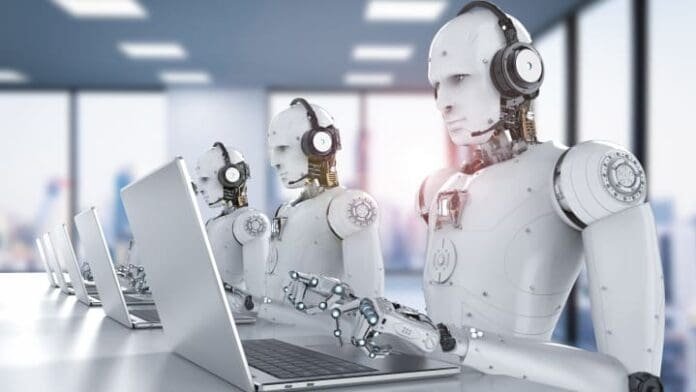Thinktank claims that technology like computers, tablets, and messaging apps has a more beneficial impact on wellbeing. A ground-breaking study from the Institute of Technology for Work Thinktank found that people’s quality of life is negatively impacted by their exposure to new technology at work, such as trackers, robots, and AI-based software. The study examined the effects on the welfare of four categories of technological products that are becoming increasingly common in the economy, based on a poll of over 6,000 respondents. The researchers discovered that workers’ health and welfare tended to decay in proportion to their exposure to technology across three categories:
- robotics
- wearable trackers
- software based on artificial intelligence
- machine learning
On the other hand, using more traditional ICTs (information and communication technologies) at work, such as computers, tablets, and instant messaging, has improved well-being.
The study stated that while quality of life declined as the interaction with modern working technologies grew, it enhanced as the regularity of engagement with ICTs increased.
The authors noted that their findings aligned with earlier research, which indicated that these technologies may worsen job instability, workload expansion, routinization, and a decrease of work meaning, in addition to powerlessness and lack of independence, all of which are detrimental to overall employee wellbeing. Despite not directly examining the causes, the researchers still need to examine the causes immediately.
According to predictions made by Goldman Sachs economists last year, the rise of generative AI might result in the automation of 300 million jobs globally by 2030 while drastically altering many more positions.
The study’s principal author, Dr Magdalena Soffia, stated that adoption practices rather than technologies are the issue.
She stated that we don’t want to assert that the effects of technology on people’s welfare are predetermined in any way. It truly depends on the context, which includes numerous structural elements, the surrounding circumstances, how it is built, and how it is used. Humans make many decisions.
She also mentioned that the researchers employed the widely recognized EuroQoL EQ-5D-3L, a quality-of-life measure that asks participants about their pain threshold, mobility, and mental health.
Our goal was to provide a more comprehensive and subtle picture of wellness. Thus, according to Soffia, we employed this highly validated measure that was also employed by the United Kingdom’s public health system.

When discussing how ICTs might improve people’s quality of life, she proposed that one reasonable explanation could be that they improve productivity by streamlining work procedures. And as a result, you feel somewhat accomplished.
On the other hand, trade unions and activists have recently issued warnings on the detrimental effects of continuous performance monitoring on workers, which aligns with the findings regarding trackers and surveillance technologies.
The TUC’s AI lead, Mary Towers, stated: “These results should concern us all.” They demonstrate how AI has the potential to make the workplace unpleasant and oppressive for many people in the absence of new substantial regulations.
It isn’t how things have to be. Artificial intelligence (AI) can be used to increase production and enhance job satisfaction if the proper regulations are put in place.
The new paper is a component of the Pissarides Study in the Development of Employment and Wellbeing, which Imperial College London, Warwick Economic School, and the IFW are working on together.
The study’s senior economics professor, Prof. Sir Christopher Pissarides, stated,” We must comprehend whether our relationships with technological advances affect our standard of life as they quickly saturate our working lives.”




